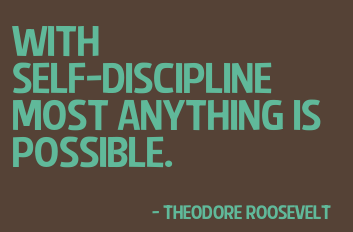Self-discipline and self-confidence… two crucial traits that are key indicators of future success not only in terms of school grades, but alsoin terms ofpositive school-related behaviors and the avoidance of problem behaviors like substance use. While theimportance of these personality traits is widelyknown, the hard part comes in enforcing the activities that builds these traits in our children and students.
First grade teacher, Shawn Barth, enrolled in Course 964: What Kids Need: Building Self-Discipline, one of our online courses for teachers, and shares his insights and tips on how to build self-discipline and self-confidence in students below:
On Saying No:
- Kids need clear limits, expectations, and consequences
- Teachers need to be firm, fair and consistent with limits and consequences
- Saying “no” allows for your student to learn how to deal with disappointment and frustration which are vital coping skills necessary for adulthood
- Kids will not learn self-discipline if it’s not taught
- Self-discipline is twice as important as intelligence in predicting successin school
On Making Mistakes
Ask yourself…
- How do you handle mistakes that are made in your classroom?
- Are mistakes a negative experience or a learning experience?
- What role does responsibility play in making mistakes?
Making mistakes is a learning experience. Mistakes should not be viewed negatively, but as a way to learn and grow. In order for kids to learn from a mistake, they need to take responsibility for the mistake that was made. It all starts with the students listening to “No” and accepting the consequences that follow.
On Self-Esteem
Ask yourself if each of thesescenarios will build self-esteem?
- Praising your studentfor his/her performanceregardless of effort
- Teaching your students songs and reading books about how special they are
- Praising your students for any effort they made to do classroom chores
- Steering your students away from things that may be difficult for them or discourage them – i.e. not challenging yourstudents
- Teaching your students that if they simply love themselves, then they will be successful
- Avoiding pointing out something that your studentdid wrong because you are afraid that it will hurt their self-esteem
All the answers to the above questions should have been a resounding NO. Lets explore some common myths about self-esteem.
- Myth #1: Self-esteem comes first and leads to success
- Myth #2: Self-esteem equals feeling good
- Myth #3: Stress, challenge & disappointment can damage self-esteem
What self-esteem really is…
- A set of opinions we have about ourselves
- Fostered by encouraging and praising accomplishments
- Accomplishments and friendships will do more for self-esteem then a year’s worth of self-esteem building exercises (Walsh, 2007)
- Disappointments and setbacks build self-esteem as long as a child learns to keep trying. Kids need to learn how to cope and deal with setbacks.
Tips to take away & share with your parents:
- Let kids make mistakes and experience disappointment
- Use “honest praise” with your child when they achieve something
- Reward real effort
- Expect your students and children to do chores (responsibility)
- Support your students & children as they learn new skills and let them work things out on their own (Don’t do things for them).
- Listen to your students/child’s opinion
- Set firm limits and stick to it!
Explore the importance of teaching students the skills and attitudes associated with self-discipline. Discover additional waysto build self-discipline & self-confidence in students. Learn how saying “no” can help students build the foundation for self-respect, respect for others, integrity, and perseverance by enrolling in Course 964: What Kids Really Need: Building Self-Discipline.
Learners Edge is passionately committed to providing you with continuing education coursework, materials, and tools that will help you succeed in your classroom and in your career.
Offering more than 100 print-based or online courses for teachers, you can earn the graduate credit you need for salary advancement and meet your professional development needs. Contact us today to get started!







